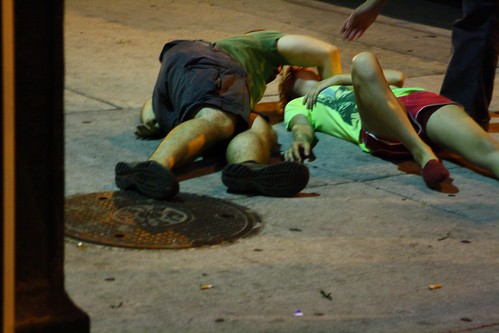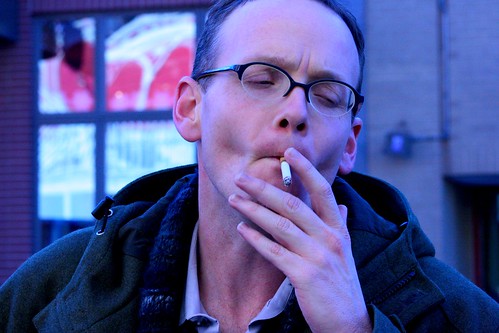Movie City Indie Archive for August, 2009
The cost of "free": how can films keep being financed?
Brian Newman, former CEO of the Tribeca Film Institute, ponders: “With the ease of “frictionless” access to media online, how will any production costs be paid for? “The Internet is a super-distribution machine that allows copies of digital media to flow in an almost frictionless way. As the wealth and survival of traditional media businesses are built on selling precious copies, the free flow of free copies is undermining the established order. If reproductions of media are free, how can we keep on financing films and how can we find value in the media we create and sell?”
Polish poster for All That Jazz

Free-associating through search engines and websites for a particular European film poster gave no joy but this Polish poster for Bob Fosse’s All That Jazz? It’s the movie, with a little less Jessica Lange, a little less open-heart. Story goes Polish illustrators almost never saw the movies before making the posters, which may be a good thing, especially in a fine case like this.
While I Was Away…
Wow. 350,000+ views in seven days. Word gets around… If you haven’t seen it, you may have feared it. By Toronto writer Jay David.
Hope and Vachon continue the indie conversation with Rockwell and Giamatti
I’ve been late posting anything about this series of short videos, but producers Ted Hope and Christine Vachon’s conversations about what-is-indie are nice’n’chewy.
Cart: The Film, by Jesse Rosten
Cart – The Film by Jesse Rosten on Vimeo.
Ever wonder how abandoned shopping carts end up where they do? 1 Comment »
Trailering Lemonade: when ad jobs go dry
From director Mark Colucci and writer Erik Proulx, an upcoming feature interviewing former advertising hotshots. From the website: “More than 70,000 advertising professionals have lost their jobs in this “Great Recession.” Lemonade is about what happens when people who were once paid to be creative in advertising are forced to be creative with their own lives.”
A midday smoke break with a colleague
There’s copyright and there’s courtesy and there’s blogging: if you’ve happened across a clumsily cropped version of this unguarded portrait (it’s not posed) of Movieline’s S. T. VanAirsdale from Sundance 2009 on any film websites, I’ll just note it’s mine and everywhere I’ve posted it, the sites have copyright notices. A link back or a credit are always appreciated—that’s the ideal of publishing and sharing work on the internet—but then again, there is the occasional blogger who compulsively cuts-and-pastes hundreds of words from the work of others far beyond legal and moral notions of “fair use,” making even the occasionally proffered link superfluous. It’s hardly worth complaining.
Eclectic Method makes with the John Hughes tribute montage
Eclectic Method – A John Hughes Production from Eclectic Method on Vimeo.
Oh goodness.
A view of the nine-eyed perspective of Google Street View

Montreal artist Jon Rafman talks about his collection of remarkable images found while tooling along the byways of Google Street View: “One year ago, I started collecting screen captures of Google Street Views from a range of Street View blogs and through my own hunting. This essay illustrates how my Street View collections reflect the excitement of exploring this new, virtual world. The world captured by Google appears to be more truthful and more transparent because of the weight accorded to external reality, the perception of a neutral, unbiased recording, and even the vastness of the project. At the same time, I acknowledge that this way of photographing creates a cultural text like any other, a structured and structuring space whose codes and meaning the artist and the curator of the images can assist in constructing or deciphering.” [Essay here.]
















